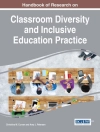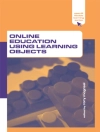Over the past decade India has witnessed a number of new land wars that have centred crucially on the often forcible transfer of land from small farmers or indigenous groups to private companies. Among these many localized and dispersed land conflicts, the land war that erupted in Singur, West Bengal, in 2006, went on to make national headlines and become paradigmatic of many of the challenges and social conflicts that arise when a state-led policy of swiftly transferring land to private sector companies encounters resistance on the ground.
‘Land Dispossession and Everyday Politics in Rural Eastern India’ is about the movement of Singur’s unwilling farmers to retain and reclaim their farmland. The book analyses the practical, representational and political work that the unwilling farmers engaged in as they have sought to mobilize public opinion; represent and justify their claims to land to a larger public; forge useful political alliances; engage and manoeuvre the legal system; navigate internal differences and discrepant interests; and simply keep the movement together on the ground. How did Singur’s unwilling farmers frame their movement to save the farmland? Which notions of development and justice did they draw on? How did they navigate everyday social cleavages and conflicts along the lines of caste, class and gender? Who led, who followed, and who was silenced? By engaging these questions through the prism of everyday politics, ‘Land Dispossession and Everyday Politics in Rural Eastern India’ makes an important empirical and ethnographic contribution to the still-limited anthropological understanding of the localized dynamics of India’s new land wars.
Inhoudsopgave
List of Tables; Acknowledgements; List of Abbreviations; Introduction; Chapter 1: Situating Singur; Chapter 2: Land, Identity, and the Politics of Representation; Chapter 3: Law, Judicialisation and the Politics of Waiting; Chapter 4: Class, Caste and Community; Chapter 5: Gendered Mobilisation: Women as Activists and Symbols; Chapter 6: Activist Leadership; Chapter 7: Ma, Mati, Manush – Mamata; Conclusion; Glossary; Bibliography; Index.
Over de auteur
Kenneth Bo Nielsen is associate professor of South Asia Studies at the Department of Culture Studies and Oriental Languages, University of Oslo, Norway.












